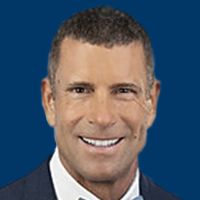Video
Dr. Van Tine on the Methods Utilized in the Spearhead 1 Trial in Sarcoma Subtypes
Author(s):
Brian A. Van Tine, MD, PhD, discusses the methods utilized in the phase 2 Spearhead 1 trial evaluating afamitresgene autoleucel in patients with advanced synovial sarcoma or myxoid/round cell liposarcoma.
Brian A. Van Tine, MD, PhD, professor of medicine, Division of Oncology, Section of Medical Oncology, the Washington University School of Medicine, Siteman Cancer Center, discusses the methods utilized in the phase 2 Spearhead 1 trial (NCT04044768) evaluating afamitresgene autoleucel in patients with advanced synovial sarcoma or myxoid/round cell liposarcoma.
The Spearhead 1 registration trial is comprised of 2 portions, including the first where patients are screened for HLA expression, a limiting factor of enrollment for patients with synovial sarcoma, Van Tine says. If patients are HLA-A*02 positive, they are then screened for the MAGE-A4 surface expression by immunohistochemistry, Van Tine explains. If patients are positive for both, they are enrolled onto the second portion of the study, Van Tine adds.
In the second portion of the study, patients undergo leukapheresis that removes T cells from the body to be modified in a laboratory, Van Tine continues. After receiving a 3-day conditioning regimen with fludarabine and cyclophosphamide, the patient receives the modified cells in the form of afamitresgene autoleucel, a SPEAR T-cell product, Van Tine says. Doing this allows the patient’s immune system to utilize a targeted-T cell from their own T-cell lineage to treat their tumor cells, Van Tine concludes.








